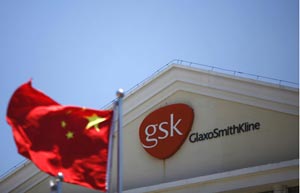Asset theft is top economic crime in China
By CAI XIAO (China Daily) Updated: 2014-02-28 02:17About 39 percent of mainland respondents who said they were crime victims said they had experienced bribery and corruption, and 41 percent predicted that it would increase.
Respondents in the mainland said they were five times more likely to be asked to pay a bribe than respondents in Hong Kong and one-and-a-half times likelier than regional and global averages.
Their concern about bribery and corruption were said to stem partly from the ongoing anti-corruption drive on the mainland, which has resulted in disciplinary measures against officials nationwide and involved multinational corporations and their foreign executives. "We have already seen China government's increasing efforts to address this," Donker said.
Procurement fraud was identified by mainland respondents as one of the most frequently experienced economic crimes, with 48 percent of respondents suffering economic crimes saying they encountered it mainly during stages of vendor selection, contracting and bidding process. The figure was significantly higher than the global result of 29 percent. The survey also showed that in almost four out of every five economic crimes reported in the Chinese mainland, the perpetrator was identified as someone inside the company and that 28 percent of these perpetrators were under the age of 30.
"The prevalence of internal economic crime themes suggests that many organizations in China need to continue to focus effort on implementing and enforcing internal controls," Donker said.
"They need to address a lack of organizational transparency and ensure that they monitor suppliers and employee relationships."
|
 |
 |
- Top 10 wealthiest people of Chinese origin
- Top 10 white-collar crimes in 2013
- Reaffirm China's resolve to fight corruption
- Judicial corruption targeted
- China targets judicial corruption in commutation
- To stop corruption you first need to swat flies
- China's network against corruption
- CNN: Corruption as China's top priority
- NHTSA says finds no 'defect trend' in Tesla Model S sedans
- WTO rare earth ruling is unfair
- Amway says 2014 China sales may grow 8%
- President Xi in Europe: Forging deals, boosting business
- CNOOC releases 2013 sustainability report
- Local production by Chery Jaguar Land Rover this year
- Car lovers test their need for speed in BMW Mission 3
- China stocks close mixed Monday

















